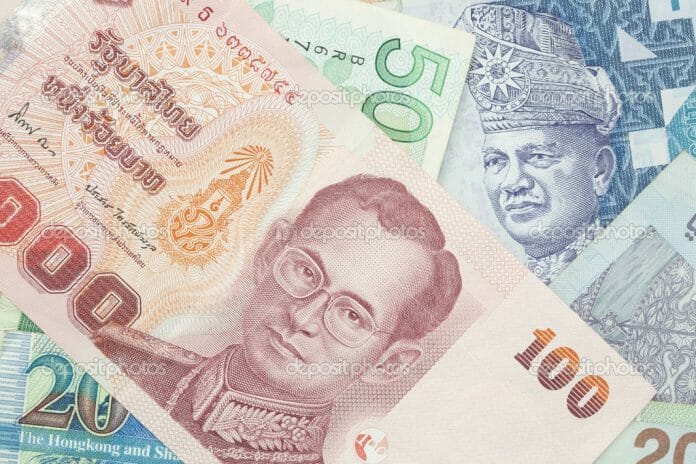The Philippine peso hit a record low, while other Asian currencies fell against the greenback on
Monday, as geopolitical concerns in Europe and extended COVID curbs in China soured risk sentiment and bolstered the safe haven U.S. dollar.
Shares across Asia lost ground, while the euro slumped to a two-decade low after Russia indefinitely closed its main gas supply pipeline to Europe.
“(Safe) haven demand was arguably triggered by headline geo-political risk dimensions to a more aggressive posture by Russia in suspending gas supplies to Europe,” said Vishnu Varathan, head of economics and strategy at Mizuho Bank.
The peso declined as much as 0.2% to hit its lowest ever at 56.99, while the Taiwanese dollar and Singapore dollar lost between 0.2% and 0.5%. Vietnam’s dong dropped 0.4% to hit a near two-and-half-year low after an extended holiday weekend.
Among other Asian currencies, the South Korean won slid 0.7% to hit its lowest level since April 2009.
In China, a resurgence of COVID-19 infections and worries over widening disruptions to economic activity further dampened risk sentiment.
The yuan has declined over 9% this year, and was down 0.5% on Monday, hitting its lowest level since August 2020.
In Indonesia, a finance ministry official said that inflation rate for 2022 is kept in check in 6.6%-6.8% range, following a 30% increase in subsidised fuel prices over the weekend.
High energy subsidies had restrained Indonesia’s inflation, allowing the central bank to delay raising interest rates until last month, well behind regional and global peers.
“For Bank Indonesia, the fuel price adjustment is a considerable game changer, given that the fiscal inflation shield is no more,” said Wellian Wiranto, an economist at OCBC bank.
The rupiah dipped 0.1%, but stocks in Jakarta rose 0.8%.
Shares in Thailand fell, though the baht
inched up after the country reported that consumer price index in August rose 7.86% year-on-year, the fastest pace in 14 years, but in line with expectations.
Bank of Thailand’s chair said that inflation is set to peak in the third quarter and is likely to be more than 6% this year.
“We now expect 2022 inflation to average 6.2% from 7.0% earlier, despite the upside surprise today,” Shreya Sodhani, research analyst at Barclays Bank said in a note.
“Our change in forecast reflects the recent falls in commodity prices, which are starting to have a noticeable impact on Thai inflation,” she added. Over the week, Asia-focused investors will be looking out for key inflation data from China, the Philippines and Taiwan, as well as an interest rate decision from the Malaysian central bank. – Reuters









